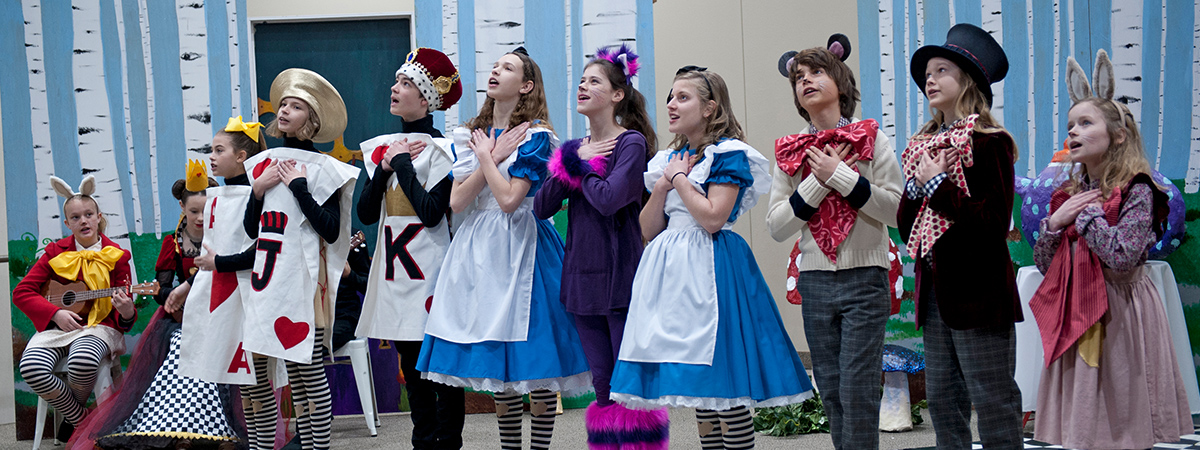Exploring Integration and Inter-connectivity
Developmental Picture of the Student
Eighth grade students have reached the culmination of the middle school experience. Their sharpened observational skills and growing critical faculties open possibilities for new ideas and perceptive questioning. With growing independence and reasoning, they strive to balance a tender emotional inner life. Eighth graders develop a sense for their emerging individuality in a world where the human experience is increasingly interconnected.
How the Curriculum Meets the Eighth Grader
By comparing and contrasting biographies of key historical figures, the students realize the powerful difference one individual can make. Beginning with the American Revolution, they study major political, cultural, and social events that have shaped the modern world. Eighth grade history empowers students to understand the past, appreciate the present, and look forward to the future.
Through scientific observation, adolescents are pulled out of their subjective emotional experiences and into the world of pure sense perception. In chemistry, students analyze the function of organic materials in the human body and their use in industrial production. Building on the history of the Industrial Revolution, eighth graders study hydraulics, aeromechanics, and the practical applications of electromagnetism in motors.
The study of world geography meets students’ growing interest in the various environments, regions, and cultures that differ from their own. Eighth graders investigate past epochs and current events through Geography, which provides a context for significant world events. The students explore how the physical landscape influences and shapes every aspect of human life, including economics, politics, religion, and culture.
The eighth grader develops connections in reasoning, enjoys constructing relationships, and explores unifying patterns across cultures in study of a variety of eras of significant revolutionary change.
The eighth grade play is an important milestone in the drama program, the culminating act of years of working together on performances, recitations, and oral presentations. Through their work on the play, students gain confidence and finesse in their memorization and public presentation skills. They also learn temperamental insights by inhabiting character roles and interpreting the historical contexts of the plays.
The eighth grade class trip is an active outdoor adventure that builds self-confidence, independence, and social bonding in a structured, supervised setting. Community service is also an integral part of the eighth grade field trip experience. Past trips have included whitewater rafting, mountain hiking, and working on a Native American reservation.
Curriculum Components
- Age of Enlightenment; American, French and Industrial Revolutions; American Civil War to present
- Shakespeare, Poetry, Practical Writing
- Geography; Meteorology
- Chemistry; Physiology
- Algebra, Solid Geometry (Platonic Solids)
- World Languages
- Eurythmy
- Fine and Practical Arts, including watercolor painting, drawing, sculpture/modeling, handwork
- Class Play, Choral Music, Orchestra,
- Physical Education
- Class Trip
- Graduation Project
Life Skills and homework EXPERIENCED IN 8th GRADE
- Writing: take notes out of a lecture review, write rough drafts; proofread material, edit and transcribe final revisions, do independent research and write a comprehensive paper on a topic, write poetry and short stories, practice grammar skills.
- Reading: read complex material for deeper meaning, identify parts of a story, active in class discussions
- Science: practice observational skills or remake the phenomenon; explain and write experiment details, draw conclusions.
- Math: solve complex computation problems, do mental math, create precise geometric forms.
- Organizational Tasks: effectively use an assignment notebook, turn assignments in complete and on time, have materials ready for class, manage time and multi-tasking to handle several assignments at one time.
8th Grade Teacher

Angela Harris Middle School Teacher




